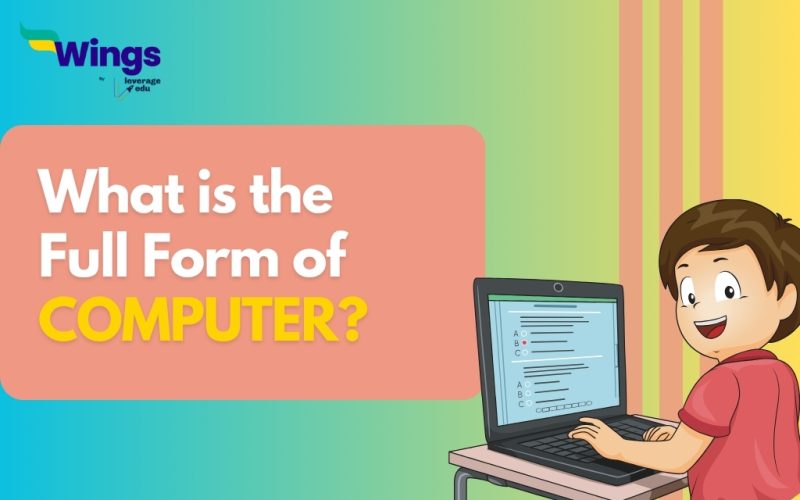The full form of Computer is a Commonly Operated Machine Particularly Used for Technical, Educational, and Research purposes. The term was coined somewhere in the mid-20th century. The acronym sums up the broad scope of computer applications. It also highlights its significance in various domains. Computers are not limited to technical fields alone; they have expanded into education, research, business, entertainment, and more.
In the digital age we live in, computers have become an indispensable part of our lives. From personal computers to laptops, tablets, and smartphones, these devices have transformed the way we work, communicate, and access information.
Also Read: Basic Computer Courses List
The Birth of Computing
The concept of the computer has evolved over the centuries. From ancient abacus devices to the invention of the mechanical calculator by Blaise Pascal in the 17th century. However, it was the pioneering work of Charles Babbage and Ada Lovelace in the 19th century that laid the foundation for modern computers. Babbage envisioned a machine capable of performing complex calculations, while Lovelace recognized its potential for more than just arithmetic.
Evolution of Computing Technology
Computers have witnessed remarkable advancements since their inception. The early computers were massive machines that occupied entire rooms, but technological progress led to the development of smaller, faster, and more powerful devices. From vacuum tubes to transistors, integrated circuits to microprocessors, computers have become increasingly compact and efficient, enhancing their accessibility and utility.
Also Read: Computer Courses
What are the Different Types of Computers?
Computers are differentiated according to their capacity and size. On the basis of size:
- Supercomputer
- Mainframe Computer
- Minicomputer
- Workstation
On the basis of data handling capacity:
- Server Computer
- Hybrid Computer
- Analog Computer
- Tablets and Smartphone
On the basis of generation:
- First-generation computers (1940-1956)
- Second-generation computers (1956-1963)
- Third-generation computers (1964-1971)
- Fourth-generation computers (1971- Present)
- Fifth-generation computers (Present and Beyond)
How do Computers Work?
In layman’s language, a computer is actually an electrical device that runs on the collection of specific instructions which are known as software. Its diverse components such as the CPU, RAM, HDD, and Input-Output devices together make up the hardware of the computer system. So, when a user issues any instruction for the device, the CPU understands and translates it, and pulls the necessary data from the RAM and HDD. At last, the output is displayed on the screen.
The Role of Computers in Modern Society
Computers have revolutionized the way we live, work, and interact. In the field of education, they facilitate e-learning, distance learning, and online research. Similarly, in business, computers streamline operations, automate tasks, and enable efficient data management. In research, they aid scientists in data analysis, simulations, and complex modeling. Furthermore, computers have become a gateway to entertainment, social networking, and creative pursuits.
Future Prospects
As technology continues to advance, the future of computers appears promising. Artificial Intelligence, machine learning, quantum computing, and augmented reality are just a few areas that hold immense potential for further transforming our world. The relentless pursuit of innovation and the integration of computers into various facets of life will shape our future in unprecedented ways.
Also Read: Computer Courses After 12th Commerce
This was all about Computer full form. Visit our Full Form Page to discover more intriguing articles about full forms. You can also check out the consolidated 300+ full forms list!
 One app for all your study abroad needs
One app for all your study abroad needs













